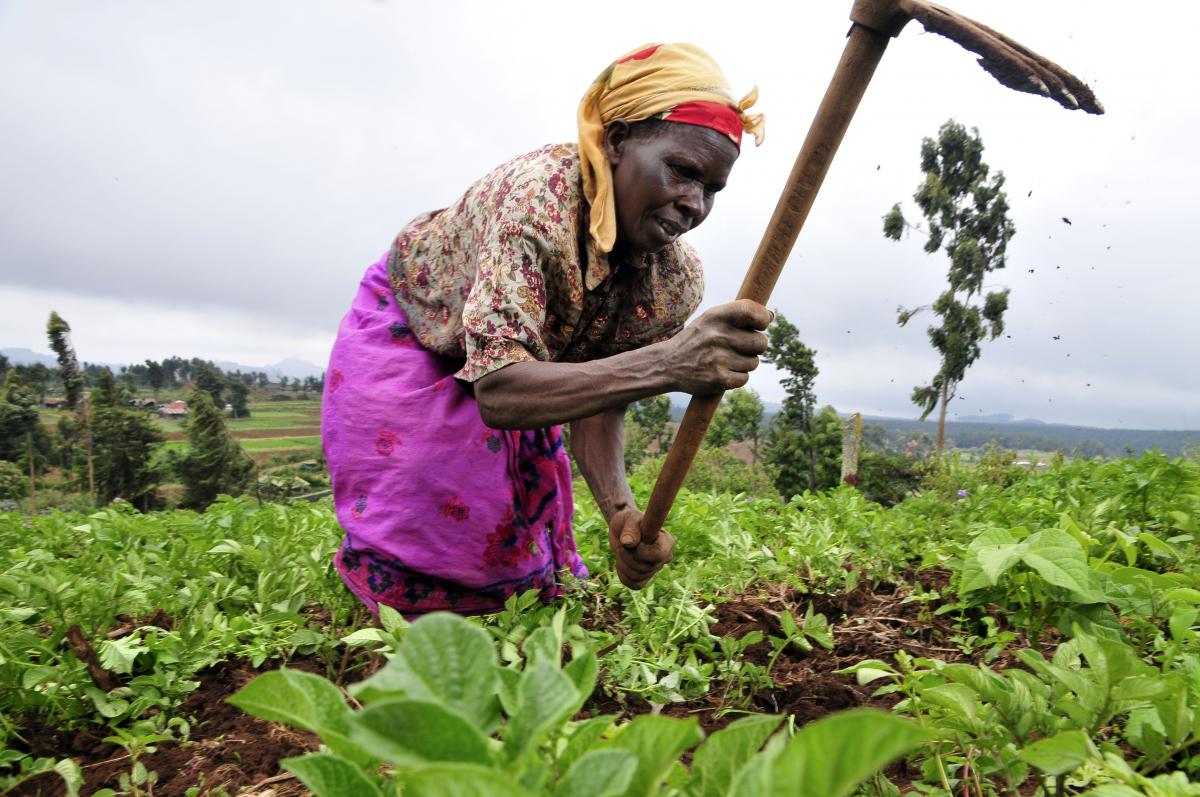Anthropology of Food and Nutrition: Linking the Subfields
This weekend highlights faculty and students working across all our divisions in the area of food and nutrition, from archeologists documenting how people lived and prepared food thousands of years ago to sociocultural anthropologists addressing critical issues such as food insecurity and adolescent perceptions of weight and weight loss. Sponsored in part by the Marshall Foundation.
Up in Smoke: The History of Barbecue with Host Steven Raichlen
Thursday, April 23, 2015, 7:00-8:30pm, Social Sciences 100 - FREE!
BBQ U host Steven Raichlen presents "Up in Smoke: The History of Barbecue" in Thursday night's keynote address at the University of Arizona Social Science Auditorium (Social Sciences 100). Steven Raichlen is a multi-award winning author, journalist, lecturer, television host, and novelist. He has lectured on the history and culture of barbecue at the Smithsonian Institution, the Library of Congress, and Harvard University, and founded Barbecue University at the Broadmoor resort in Colorado Springs. His bestselling books and his popular TV shows—Primal Grill and Barbecue University on PBS and Le Maitre du Grill in French—have redefined modern barbecue. His 30 books include the international blockbusters The Barbecue Bible and How to Grill (each with more than 1 million copies in print) and the New York Times bestselling Planet Barbecue. Steven Raichlen's books have won 5 James Beard Awards and 3 IACP-Julia Child Awards and been translated into 17 languages.
The Human Appetite: A Symposium on Food and Anthropology
Friday, April 24, 2015, 1-4pm, Haury 216

Food engages our senses, evokes a sense of place, and offers a means for nurturing. Our efforts to obtain it and how we think about it have structured human life from our earliest beginnings to the present day. From subsistence strategies, to nutrition, to the role of foodways in identity construction, to food security and sovereignty, food is THE story of the human condition. Anthropology offers a robust perspective on food that cuts across time and space. UA anthropologists are at the forefront of research on food from biological, cultural, archaeological and social perspectives. A panel showcasing the work of faculty and graduate students in the School of Anthropology will explore various aspects of how we, as humans, are what (and how) we eat.
All symposium sessions take place in Haury 216.
Presentations:
1) The (almost) Lost Art of Heritage Butchery ~ Ashley Stinnett
2) Early Roman Animal Sacrifice and Consumption ~ Victoria Moses
3) Mobile Meals: Diet and Identity among East African Pastoralists ~ Ivy Pike
4) Tackling Food Security in the Sahel: the Challenge of Resilience ~ Mamadou Baro
5) Lessons from Ndee Bikiyaa, The People's Farm: The Healing Potential of White Mountain Apache Food Sovereignty ~ Amanda Hilton
6) Biography of a Grain: Ethnographic Conundrums in the Narratives of Revival about White Sonora Wheat ~ Maribel Alvarez
Eating in the Southwest: Native Foods Fundraising Dinner
Friday, April 24, 2015, 6pm (cocktails and tour), 7pm (dinner)
University Indian Ruin - 2799 N. Indian Ruins Rd, Tucson, AZ

Add event to calendar.24-04-2015 18:00:0024-04-2015 20:00:007Eating in the Southwest: Native Foods Fundraising DinnerUniversity Indian Ruin, Tucson, AZIn celebration of our Centennial, the School of Anthropology is hosting an exclusive Southwest-inspired dinner prepared by renowned Tucson chef, Janos Wilder. Guests will dine al fresco on the patio of the residence located on site at the University Indian Ruin, where they will enjoy dinner in a distinctive atmosphere. A complimentary tour of the ruins will be offered before dinner. Cost $150 per ticket; $75 tax-deductible contribution. Please RSVP and purchase tickets at https://uafoundation.org/NetCommunity/JanosDinner by 9:00 p.m., Thursday, April 17, 2015.
10,000 Years of Eating in the Southwest
Saturday, April 25, 2015, 10am-3pm, Arizona State Museum lawn
 This event highlights the transformation of food and eating in the Greater Southwest over the past 10,000 years. Visit demonstration booths designed and staffed by faculty, staff, and students of the School of Anthropology, Arizona State Museum, and our local and regional partners. Take tours around Tucson, led by faculty experts, to visit archaeological sites where you will learn how our predecessors in this region grew, prepared, and consumed food; and to visit local farms and gardens to learn about local foodways and about how current residents and community leaders are addressing food insecurity.
This event highlights the transformation of food and eating in the Greater Southwest over the past 10,000 years. Visit demonstration booths designed and staffed by faculty, staff, and students of the School of Anthropology, Arizona State Museum, and our local and regional partners. Take tours around Tucson, led by faculty experts, to visit archaeological sites where you will learn how our predecessors in this region grew, prepared, and consumed food; and to visit local farms and gardens to learn about local foodways and about how current residents and community leaders are addressing food insecurity.


Food Tour: Local Foods from Tucson's Past
Saturday, April 25, 2015, 11am-3pm, departs from Arizona State Museum lawn
Cost $25 per person (not tax-deductible). Sign up at https://uafoundation.org/NetCommunity/localfoods before 9:00 PM, Thursday, April 23.
The tour will visit three locations that represent Tucson farmers and their local crops at different points during the past 4,000 years. School of Anthropology and Arizona State Museum archaeologists Paul Fish and Suzanne Fish will lead you through a village site high atop Tumamoc Hill, where Native American farmers whose main crop was corn lived about 400 B.C. and again at A.D. 500. On the valley slope below are the remains of extensive fields where later farmers planted agave and pits where they roasted their harvests at A.D. 1250. Nearby, on the east side of the Santa Cruz River, sits the reconstructed walled garden of Mission San Augustin. Here, volunteers from Friends of Tucson’s Birthplace grow both Spanish Colonial era, Old World crop varieties, and foods from Tucson’s enduring indigenous traditions. Archaeological investigations prior to the Garden’s reconstruction revealed canals that irrigated crops in this same location 3500 years ago.
***Please wear sturdy walking shoes and bring a hat, water, and snacks if you like. If time permits, we will make a brief stop at the Mercado San Augustin where drinks and snacks may be purchased.








